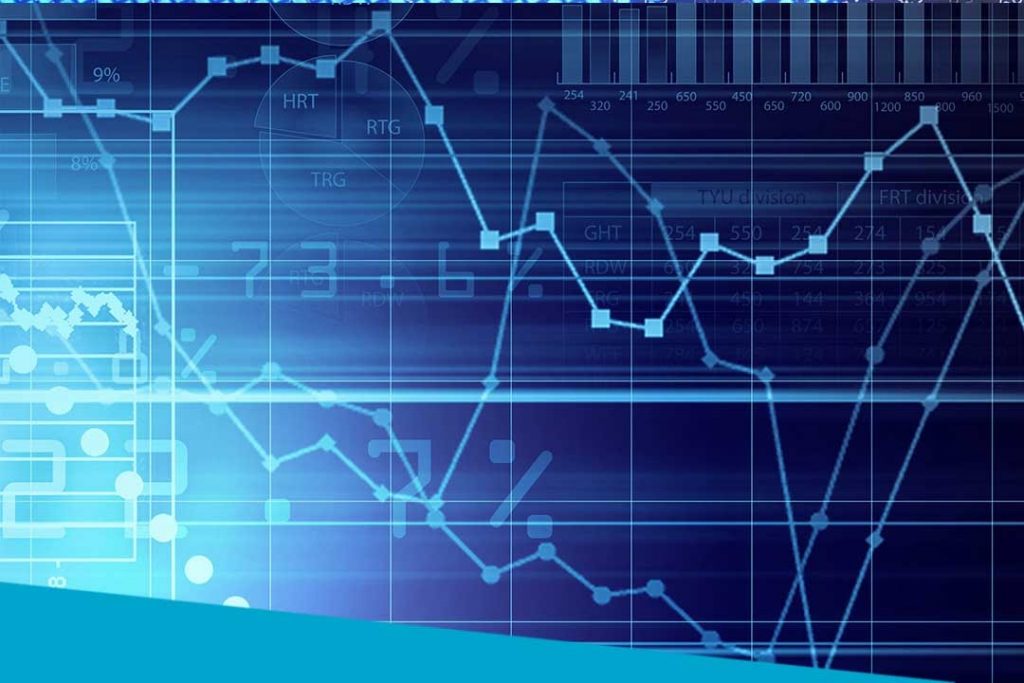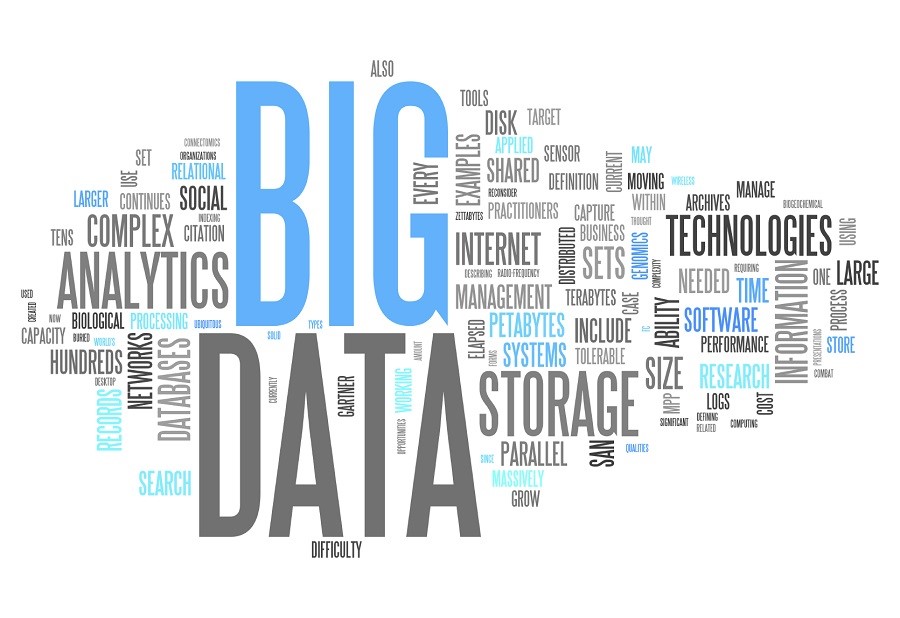“Cyberspace. A consensual hallucination experienced daily by billions of legitimate operators, in every nation, by children being taught mathematical concepts… A graphic representation of data abstracted from banks of every computer in the human system. Unthinkable complexity. Lines of light ranged in the nonspace of the mind, clusters, and constellations of data. Like city lights, receding…”
― William Gibson, Neuromancer
Ever since the Sumerian clay tablets and Egyptian hieroglyphs humanity has been producing enormous volumes of information leaving its historical trace — symbols, numbers, marks, and signs — all over the planet. With the arrival of the digital age, rates of production spiked significantly and are still rising today. Those “informational ziggurats” stored on countless magnetic, mechanical, and optical drives are what we call the Big Data.
The very first mention of the term dates back to the year 1977, however, it is not until 3rd September 2008 that data became truly big and one of the “Nature” magazine editors Clifford Lynch suggested to use it in a similar vein with the economical terms of Big Oil and Big Ore. On that day, the world has acknowledged the potential of the data exponential growth in the world economics context.

What is the difference between Big Data and statistics? First and foremost, it’s the sheer volumes of data that distinguishes the new concept. Big Data concentrates on significant masses of unstructured data that isn’t designated by any initial parameter or a certain goal. Huge data-bundles are much more convenient and efficient in storage with the capabilities of modern digital drives.
For example, a mobile network operator MTS chose to gather and store all the received data as its strategy. By doing so, they can grant access to the database to analytics when needed, even if they don’t have any particular plans for it at the moment — it’s so cheap to collect it.
But the culmination of Big Data usage is reached in constructing brand new enterprises with the help of already existing data massives for new business-processes. It’s crucial to remember that effective implementation of Big Data for Businesses is often obstructed by obsolete business-processes. So make sure to analyze them and assess the required tools beforehand, as this may save you lots of time and effort.
For complex problems like this, one can create an analytical department of their own or get some assistance from an outsourcing company specializing in complex solutions. A perfect example of such an agent would be the Ukrainian software developer company IDAP. They have a wide range of services and over 200 projects they are currently working on, which speaks of itself.
The Main Pros of Big Data
1. Helps in choosing a proper approach to clients. By processing those large masses of data coming from diverse sources, even just by looking at the open public ones you will get a lot of essential information about the potential clients — whether they prefer online or offline purchases, their spontaneous shopping tendencies, which sources they read daily, and many more facts that will help you set a specific direction for the new services development programs. Chances are, your business peers already make use of the advantages of Big Data in their work — according to the survey conducted by CNews, 40 out of 108 companies have implemented Big Data. So using it is not even about getting ahead, but rather keeping up with the leaders.
Great examples of Big Data utilization are the Steam and Netflix recommendation sections. Netflix went even further with their services — instead of just analyzing the data and showing the according to content to their users, they actually create new shows based on the preferences of their users. “House of Cards” series took into consideration all the aspects of some of the main shows loved by the general public of the platform and as a result, we have a solid IMDB rating of 9.0. They also use precise categorization extensively — more than 90 thousand of microgenres for searching such as “dark sci-fi suspense” and many others!
However, more traditional enterprises will definitely benefit from Big Data as well. For example, UPS uses masses of data for their online-maps and telemetric systems to create GPS-paths for thousands of car drivers all over the world.

2. Operational speed. The speed of work is of the utmost importance when it comes to matters like the New York financial market which has an informational total of as much as a terabyte per day on average. It would be unreasonable to make humans process that amount of data, so this work has been long delegated to supercomputers that record and keep track of all the possible outcomes, calculate the likelihood of certain results, foretell the behavior of the market, and improve the bidding parameters.
Big Data in businesses is used in many different industries, all of which require lightning speed of data processing. Another good example would be advertisement enterprises. Ad companies rely on the real-time work mode ever more often, to maximize the profits they need to amp up the rate. Using data volumes, computer systems are able to automatically select the best time and type of content based on the information about their viewers. It can even optimize the budget using this principle, all while practically reducing the time for analyzing the charts and graphs to none!
3. The efficiency of targeted marketing. Big Data for small businesses that won’t tolerate losing even a single client is even more vital than for large businesses in that sense. An elaborated targeting campaign conducted at a perfect time for the best client perception, engaging in communication with minimal investments, and efficient processing of the obtained experience will inevitably lead to high business results, a rise in revenues, and cross-sales.
4. Surprising correlations. Blogs and social networks generate an unimaginable amount of information daily — over 42 zettabytes in total at the moment — and it’s harder to process all of this than to parse all books, parchments, and clay tablets of pre-computer history ever written by the humankind. And all the more so it is impossible to do in real-time mode. More precisely, it was impossible before Data Science. Today, we even can trace the impact of weather conditions on demand for specific market sectors, which are sometimes extremely non-obvious.
5. True metrics. Unlike expert attempts to explain business processes, that are sometimes quite unsubstantiated and poor in evidence, the involvement of third-party Big Data Help Company or setting-up an analytical department provides more transparent explanations about current events and provides good prospects to forecast and suggest necessary measures.

Now to the Cons of Big Data
1. Big Data is much like Big Brother. There is a fairly formal line between a series of “Black Mirror” and Chinese “social credit”, Brexit and elections, and “Once guilty, always punished” by Xi Jinping. The world of the future is becoming more and more transparent, and Big Data is only speeding up the process many of us wouldn’t want to see coming at all.
Of course, there are more or less “shaded” areas that are more private, like the banking sector, but whether or not a person will be able to maintain a monopoly on their own data at least to some extent (and if so, how much it will cost?) remains an open question. It seems that data ethics are yet to be developed in the fast-moving world we live in.
2. However efficient it may be for some, there is a high percentage of cases in which the system just won’t work at all. According to Gartner forecasts, about 68% of companies that start operating on Big Data will fail. This calls especially true for those who want to fundamentally reverse the usual course of business, seeing Big Data not as one of the tools, but as a universal “magic wand” to solve all the problems and make lots of income without them moving a finger.
3. Difficulties in predicting performance efficiency. At the current stage of development, AI, machine learning, and Big Data industries are just testing numerous cases for improving accuracy — they are not yet in their final form. The introduction of a case in business de facto occurs before the calculation of the price of automation, so to find out whether it was a good idea or not is only possible post factum.
4. The human factor. Although there are no difficulties with the collection and storage of data sets, the bottleneck of Big Data is the underdeveloped modern business infrastructure, organizational complexities, and analytical problems. A Data Science expert is still an essential part of a successful Big Data analysis.
They should understand statistics, probability theory, be able to conduct experiments, and visualize data. Not only that, but they also require substantive knowledge of a specific business, its market peculiarities, and features to do the job effectively. There is also the problem of “single analysts”, whose efforts are undermined by lack of resources and capacity.
5. False correlations and vulnerability of algorithms to manipulation. Perhaps the most expressive example of this drawback is the correlation between the decline in homicide rates in the U.S. and the decline in the proportion of people using an Internet Explorer browser. Another problem is the mechanistic manipulation of algorithms to find loopholes and “parameter matching” of the system.
Summary
So the question is — should you implement Big Data in your business? Well, it seems that some kind of integration of Big Data into business processes is inevitable. It is important to remember that although Big Data analytics is a useful tool for finding unexpected and non-obvious insights, increasing customer focus, cutting off insolvent and unpromising customers, and much more, it is only a tool and not another technological “machine god” fulfilling wishes of any business.
While using Big Data, you should not rely solely on detailed data. Consider your specific business needs, create services and projects integrated with Big Data analytics as an answer to these needs, and don’t follow the forecasts blindly. Thus, you will insure yourself from disappointment in another “hype trend” and acquire an extremely valuable tool for your business arsenal.



